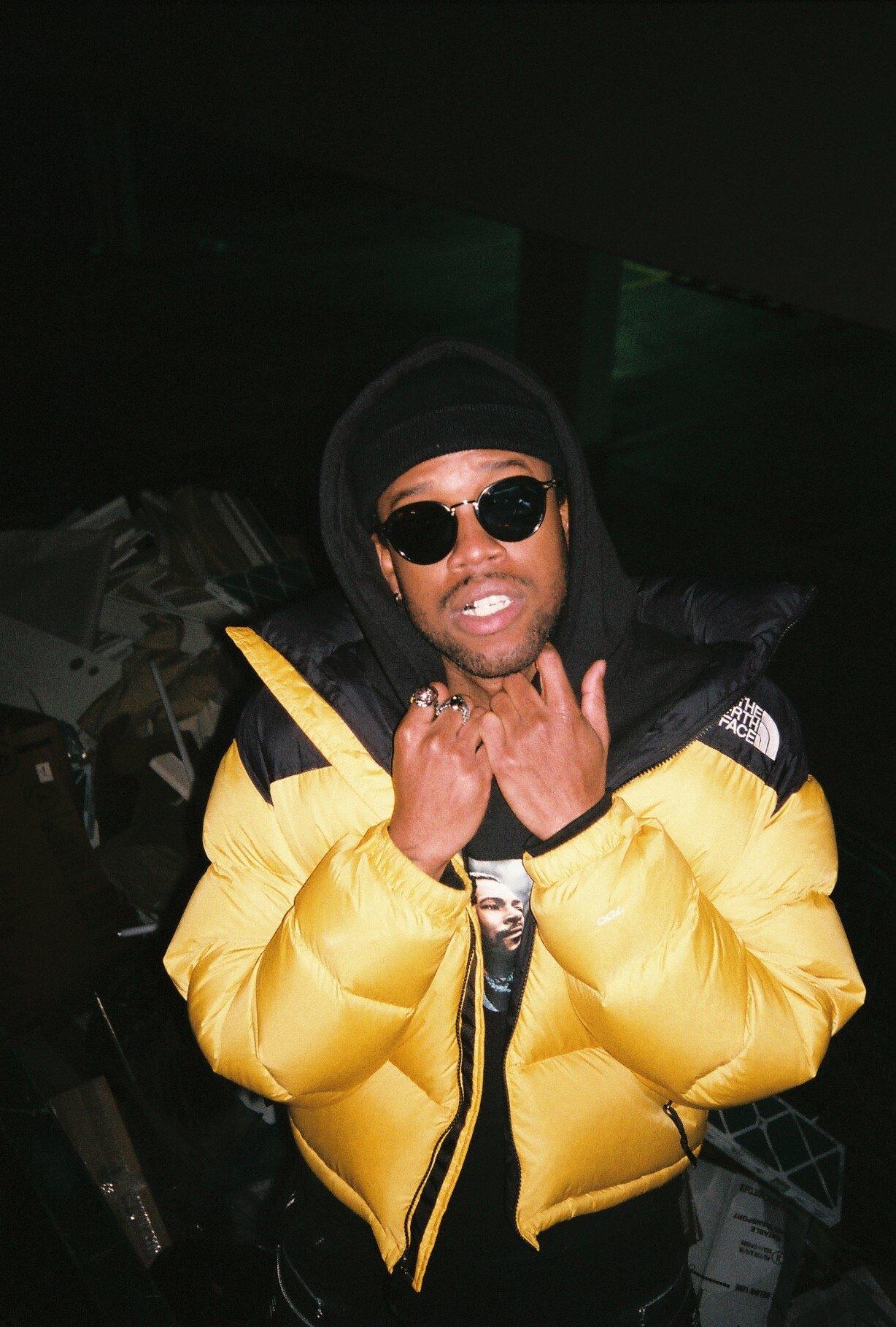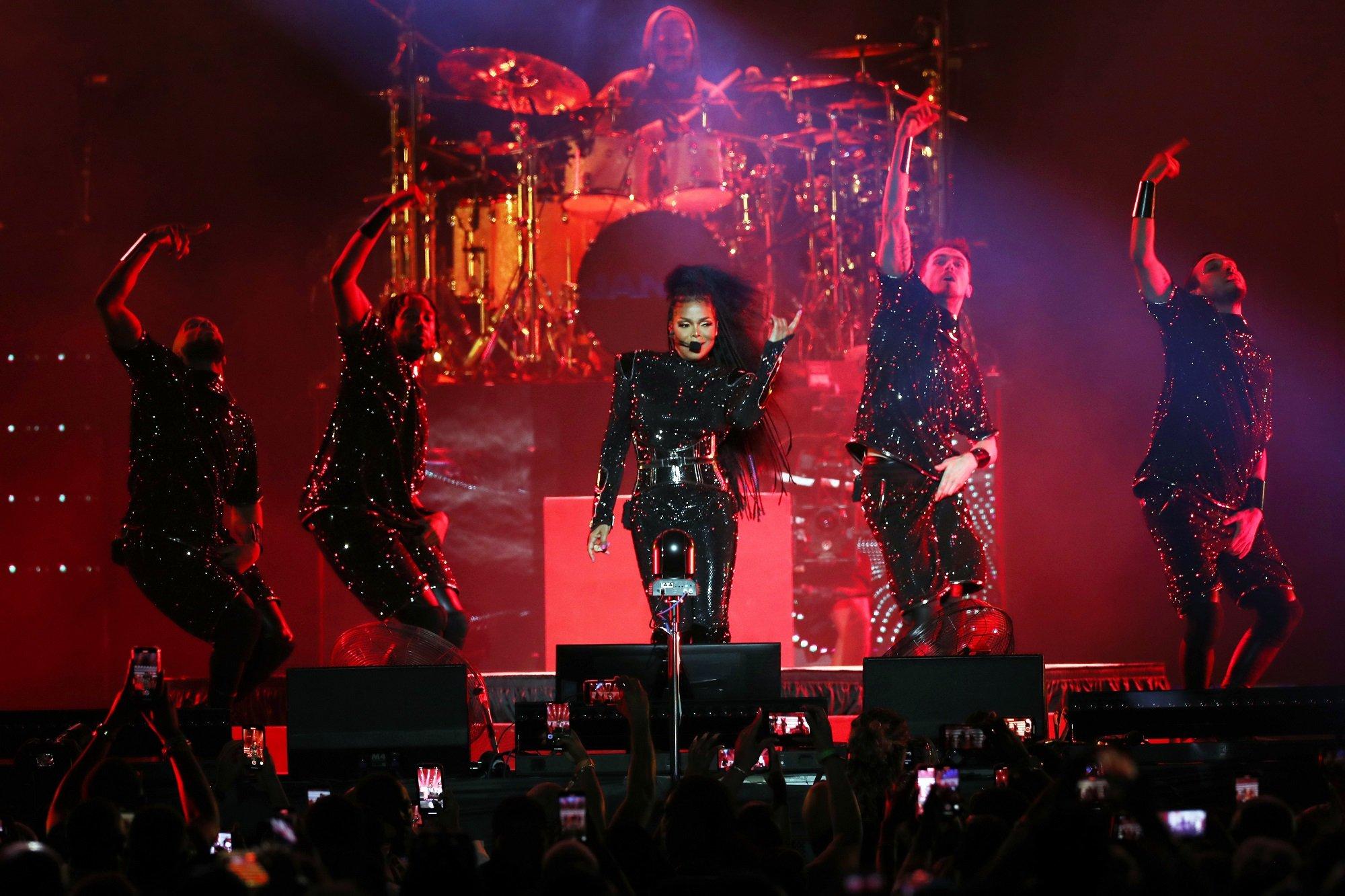Every July, millions of Black people, specifically Black women, descend upon New Orleans for the Essence Festival of Culture (EFOC). Known for many years as the Essence Festival, the festival is a celebration of Black culture, community, and heritage. Since its inception in 1995 as a one-off event to commemorate the publication’s 25th anniversary, the festival has evolved into a diasporic jubilee, drawing in people of African descent from across the diaspora.
In addition to its global presence, the festival pours millions of dollars into the local New Orleans community, which has served as the festival's home for 30 years (with the exception of 2006, when the festival was held in Houston, because of Hurricane Katrina). In 2020, the festival was canceled because of the COVID-19 pandemic. Despite this, the annual festival continues to be one of the most sought-after and attended festivals in the United States.
This year’s Essence Festival of Culture will be held at the Superdome from July 4-7, replete with legendary and fast-rising talents. On July 5, Birdman & Friends will celebrate the 30th anniversary of Cash Money Records. The following day will feature a special performance by Charlie Wilson, while Usher will commemorate the 20th anniversary of Confessions.
Janet Jackson and Victoria Monét will headline the festival's final night, while Frankie Beverly and Maze close out the festival with the return of All-White Night. Other performers include The Roots featuring Mickey Guyton, Ari Lennox and T-Pain, Busta Rhymes, Raphael Saadiq, D-Nice featuring Shelia E, Big Boi, and many more.
Read more: Music Festivals 2024 Guide: Lineups & Dates For Lollapalooza, Coachella, Bonnaroo & Much More
EFOC has been compared to SXSW, Coachella, Austin City Limits, and other notable festivals, yet it stands out for its empowerment-centered approach. It is not simply a festival, it is a family reunion. The one festival in the United States that does not pander to or take advantage of Black audiences, but truly celebrates them and their achievements. Although music has always been an integral part of the festival’s ethos — Aretha Franklin and B.B. King performed at the first iteration — the festival excels in its multi-generational and interdisciplinary programming. On any given day, attendees can attend sessions on Black entrepreneurship, politics, mental health, and literature, as well as seminars focused on issues impacting the Black community.
There’s a reason why the festival is referred to as the party with a purpose. For decades, it has operated as a celebratory convening place for Black people, Black families, and Black communities. Now, more than ever, spaces like EFOC are needed, as the Black community experiences an onslaught of changes — from Historically Black Colleges and Universities in North Carolina and Tennessee being subject to intense government oversight, to Black women-owned venture capital firms being targeted by conservatives, and Black voting rights becoming at risk during an election year.
Ahead of the festival’s 30th celebration, Michael Barclay, Executive Vice President of Experiential for ESSENCE Ventures and Barkue Tubman Zawolo, Chief of Staff, Talent and Diasporic Engagement for Essence Ventures, spoke to the Recording Academy about the history, legacy, and future of the Essence Festival of Culture.
This interview has been edited for clarity.
Are you part of the generation that grew up with the Essence Festival of Culture? If so, how does it feel to be a part of it?
Barkue Tubman Zawolo: I'm originally from Liberia. And even being in Liberia, prior to my family moving to the U.S. in 1980, Essence was always a thing for my mom and my aunts. When we came here, fast forward to me, as an adult, [after] graduating college, I got into the music industry. I've managed artists that have gone through the Essence stages and pages in different ways.
Essence Fest has always been something that we were familiar with. I have to say, I had not really experienced Essence Fest until 2019 when Essence was actually a client. One of the things that I was doing [at that point] was integrating the Diaspora and African creatives within the festival in fashion and music.
To be in the role that I'm in right now and to be on a team with people who have been a part of Essence for a long time…. Essence seems to be ingrained in all of our fabric. [What] started as a music festival now is the Super Bowl of Culture that is the Essence Festival of Culture. To be on the team that helps bring this to life for our community is a daunting but rewarding task all in the same.
Essence is something that I don't think anybody in our community takes lightly. Even our partners understand the value of it. We certainly understand that we serve the Essence-inverse and, and we are in service to this community. It is a huge honor to be able to be a part of the team that brings this to life and, and, and constantly hear what it means to the community globally too.
One thing that I admired, especially about last year's festival, was GU Kickback — a music event hosted by Girls United, the publication’s Gen Z vertical. I saw a number of local artists from New Orleans, such as 504ICYGRL. ESSENCE just released a series of cover stories celebrating the 30 year relationship between the publication and New Orleans; how do you highlight the city and their history?
Michael Barclay: As somebody who's worked in experiential, creating gatherings and experiences for almost 25 years now, the venue is always important when you're trying to set the box where you are creating for your community, for your audience. New Orleans has been that backdrop for us for almost 30 years now.
New Orleans is the convergence of our mission, our brand, in a city that is perfectly matched for that energy. New Orleans is as much a part of Essence Festival of Culture as Essence Magazine is to Essence Festival.
It is very much a partnership that has created this cultural movement. To be more inclusive, and highlight more of those local relationships and talent is very intentional. It has been something that we have put a lot of energy and effort into over the last couple of years.
This will be my third festival this year. I think Barkue, you started maybe a year or two before me. We're a fairly new crew that is working to help grow and reshape and solidify those relationships. Even with how we handle the management of the festival.
Our VP of Essence Festival, Hakeem Holmes is a hometown boy from New Orleans. He's the pride and joy. They love to see him coming. He's always enlightening us on the things that we need to be focused on for the city and how we make the best partnership and make the best impact on the area.
It was intentional what you saw last year. It's intentional this year. We dedicated our entire festival edition of the magazine as a love letter to New Orleans. It's a symbiotic relationship that is one of the key reasons why this festival is the Super Bowl of Culture.
I would love to hear about the talent aspect of the festival. Last year, Megan Thee Stallion headlined. In previous years, Beyoncé and Prince have served as headliners. What is the formula between balancing local talent, national talent and diasporic talent at the festival?
Zawolo: As we grow the festival, the intentionality becomes even more and more important. And, what we do in understanding where we are as a brand.
We're 30 years into the festival, the brand is 55 years. What's traditionally known as the Essence Woman is now bringing her daughter. It's multi-generational. We also know that the world is as big as your cell phone, so people are now exposed to different types of content and music.
We see the influence of Afrobeats and Caribbean music. We are intentional about making sure that every night really speaks to multiple generations, but it's anchored in a generation. It's like, who's bringing, who to the concert on Friday? Is it the daughter bringing her mama?
It's anchored in that younger demo, but we're going to make sure that they're going to have a collective good time there. Saturday is usually our heaviest night. We have our living legends that show up there; that really cuts across generations. This is anybody can bring anybody, but let me tell you, you're going to be able to teach each other, connect with each other with the different groupings of talent that we have.
We try to make sure that there is something that speaks to us, but that that connects with the diaspora on as many nights as possible. Sometimes it's not because they're from a different country, but because we know the music also resonates.
If you think of Janet Jackson, you can go anywhere in the world. She can check off that box, although she's not from there. You can create those ties, but we also are intentional about having Ayra Starr and Machel Montano. Last year we had Tems and Wizkid. The goal is to continue to grow what that looks like, because we are a global brand and that is our diasporic and global intent in connecting the global Black community is really important.
We are intentionally multi-generational. We intentionally lead into where a multitude of generational communities can come together and have fun together. There is something for everybody. We have a unique opportunity with Essence as the brand grows to be able to not only speak to what they want to call the aunties, I call the punties. I also think that this is where we get to educate the next generation on where we're coming from. We also get to learn from them on where they are and where they want to go.
What a beautiful way to kind of tie all of these connections. Last year, the festival celebrated 50 years of hip-hop; this year you're celebrating the 30th anniversary of the festival. What is the intention behind this year’s music programming?
Zawolo: Paying homage to people who had done some historical things on our stages. We have Janet [Jackson] back. People are like, “Oh, we saw Janet two years ago,” but Janet is also one of the highest sellers in the festival's history.
If we're going to celebrate, let's celebrate, because we know Janet never disappoints. We also want to lean into some of the [older] talent, like Charlie Wilson, Uncle Charlie. He's graced that stage so many times, but yet it's still very relevant. Using this moment to reignite things that we've done in the past and bring them back to life that we know the audience missed.
Frankie Beverly, who is going to come, this is probably going to really be his last performance. The passing of the torch. This year was about having to be intentional about what other milestones are happening that are important to this culture. Cash Money is also celebrating 30 years. Who better, right?
Essence has been in New Orleans for 30 years. Cash Money and crew are from New Orleans. Juvenile just got the key to the city from the mayor. We want to honor and celebrate him, but we also want to recognize the influence that this group of very creative, entrepreneurial, rappers and artists have had on culture, because there was a time where we all were backing that ass up.
Making sure we highlighted milestones, connecting with people who have historically been a part of making history with us, introducing some new ones — that's what we have to do. We have to set up now for the next 30 years. We want to go to the soul of what appeals to our audience, and we're really all about good music.
I think the 30th year just continues to do what we do. As we look to grow and connect demos, Megan Thee Stallion is a very viable option because again, the daughter now is going to bring the mama. Intergenerational diasporic and connecting demos, I think that only happens at the Superdome. That's also happening in the convention center, which I believe is honestly the soul of the festival.
What are your hopes and aspirations for the next 30 years of the Essence Festival of Culture? Will Essence Fest always be in New Orleans? Are we going to have an Essence Fest in Lagos, Nigeria?
Barclay: Being on this side of [EFOC], seeing the true impact of the festival and how it impacts the communities, how it impacts the folks that come to New Orleans, and now, because we've expanded to our virtual audience, the 1.7 million that are viewing around the world, my hope for the festival is that we continue to show up where our community needs us.
We're going to be in New Orleans. We're going to be in our official world as we call it. If you can't make it to New Orleans, you can tune into Essence.com and you can see what's going on there. We are creating virtual experiences, AR experiences, VR experiences, all those things, so really keeping up with the way that people continue to connect with each other, whether they're physically in the same place or halfway across the world.
I think that type of innovation is what I want to continue to see us do and allow us to create that joy that we generate in New Orleans and wherever it's needed for our community.
PRIDE & Black Music Month: Celebrating LGBTQIA+ & Black Voices

























